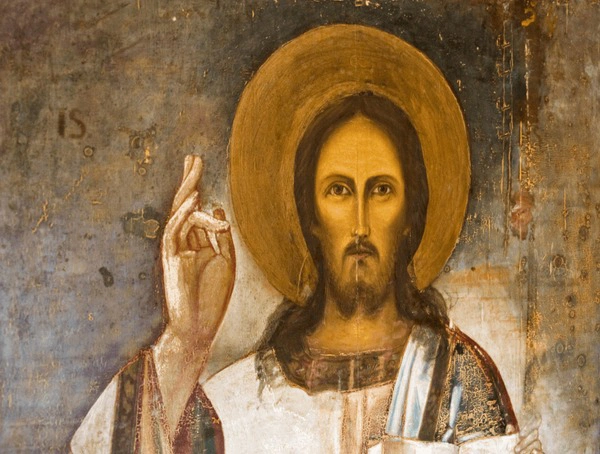
Why Jesus Ate with Tax Collectors and Sinners: A Revolutionary Act of Inclusion
Criticism often arises when actions challenge established norms and expectations. In Matthew 9:11, Jesus' willingness to eat with tax collectors and sinners highlights His revolutionary approach to inclusivity and the boundless nature of God's love, challenging the rigid norms of the Pharisees and inviting us to embrace a more inclusive faith.
Joshua Brooks
04/12/2024 - 6 months ago

Understanding the Context
In the Gospel of Matthew, Chapter 9, Verse 11, we encounter a moment that reveals much about societal norms and religious expectations of the time. The Pharisees, a group of Jewish leaders known for their strict adherence to the law, were perplexed by the actions of Jesus. They questioned His disciples, asking why Jesus would associate with individuals considered unworthy by societal standards – tax collectors and sinners. This scenario underscores a critical aspect of Jesus’ ministry: His willingness to reach out to those marginalized by society.
Tax collectors in Jesus’ time were often despised because they collected taxes for the Roman Empire, which occupied Israel. Many tax collectors were known to extort money, taking more than required to line their pockets. As a result, they were not only seen as traitors to their people but also as sinners in the eyes of the religious community. The Pharisees’ question reflects the prevailing judgmental attitude toward these individuals.
Sinners, as referred to in this context, were those who did not conform to the strict religious laws upheld by the Pharisees. These were often people who struggled with moral and ethical shortcomings. By choosing to dine with them, Jesus was making a radical statement about the inclusivity of His message and the boundless nature of God’s love. This act of fellowship was both a challenge and an invitation to re-examine preconceived notions of righteousness.
Jesus' Revolutionary Approach
Jesus had a unique approach to ministry that often clashed with the religious authorities of His day. By eating with tax collectors and sinners, He demonstrated a profound truth: God's kingdom is open to everyone, regardless of their past or social status. This action was revolutionary because it broke the barriers that the Pharisees and other leaders had erected to separate the 'righteous' from the 'unrighteous.'
The act of sharing a meal in Jesus’ culture was significant, symbolizing acceptance and fellowship. By doing so with those deemed sinners, Jesus was not only extending forgiveness and grace but was also reshaping the notion of community. He showed that the love of God transcends human judgment and that every person has inherent worth and potential for redemption.
Through His actions, Jesus taught a lesson in humility and compassion. He illustrated that spiritual health does not come from isolation but from engagement with the world, especially with those who are lost or suffering. This approach challenges us today to consider how we interact with those society might marginalize or judge, urging us to follow Jesus’ example of radical love and inclusion.
The Pharisees' Perspective
The Pharisees’ reaction to Jesus’ actions highlights their strict interpretation of religious laws. They believed that purity and holiness were maintained by adhering to a set of rules, which included avoiding those considered sinful. Their question to the disciples was not merely inquisitive but was an expression of disapproval. They saw themselves as guardians of the faith, tasked with upholding tradition and order.
To the Pharisees, Jesus’ willingness to associate with sinners was a threat to their authority and the established religious order. It challenged their understanding of what it meant to be holy and blameless. They were concerned that Jesus’ actions could lead others astray, undermining the societal norms they worked hard to maintain.
However, their perspective was limited by their inability to see beyond the law to its ultimate purpose – love and reconciliation. They were so focused on the letter of the law that they missed the spirit of it, which Jesus embodied through His compassionate interactions. This serves as a reminder of the dangers of legalism and the importance of understanding the heart behind religious practices.
Lessons for Modern Readers
For modern readers, Matthew 9:11 provides a powerful lesson on the nature of true faith and community. It calls us to examine our own biases and prejudices, urging us to break down barriers that prevent genuine relationships. In a world where division and judgment are prevalent, Jesus’ example invites us to embrace inclusivity and love.
This passage challenges us to look beyond outward appearances and labels, seeing each person as valuable and loved by God. It reminds us that our mission as followers of Christ is not to judge, but to extend grace and compassion. Just as Jesus’ actions were counter-cultural in His time, we are called to act against the grain, embracing those who are different from us.
Ultimately, this scripture asks us to reflect on our own lives and communities. Are we open to sharing our tables with those who are different? Are we willing to reach out to those who are marginalized or judged? By following Jesus’ example, we can create a world that is more reflective of God’s kingdom, where love and acceptance are the guiding principles.
- Read Also: Embracing the Love and Compassion of God




















